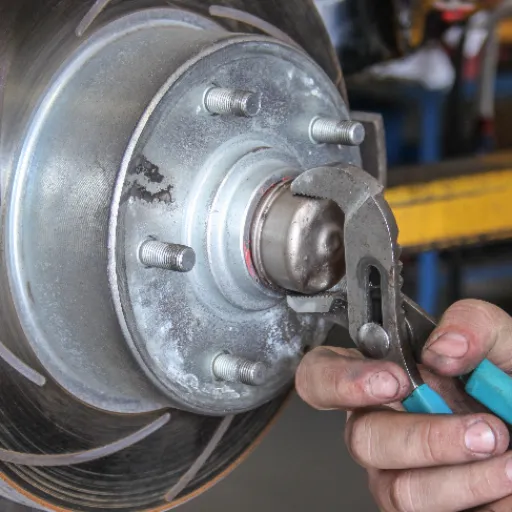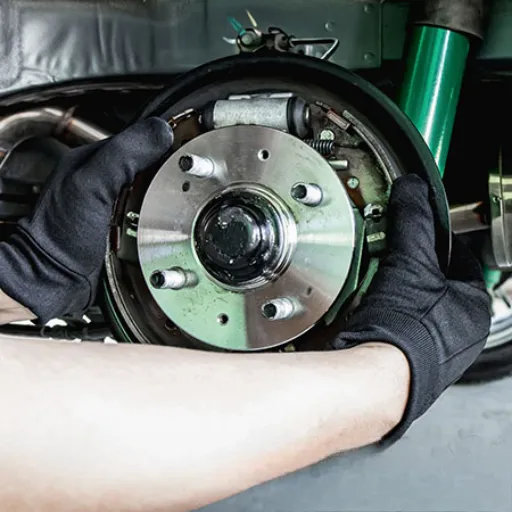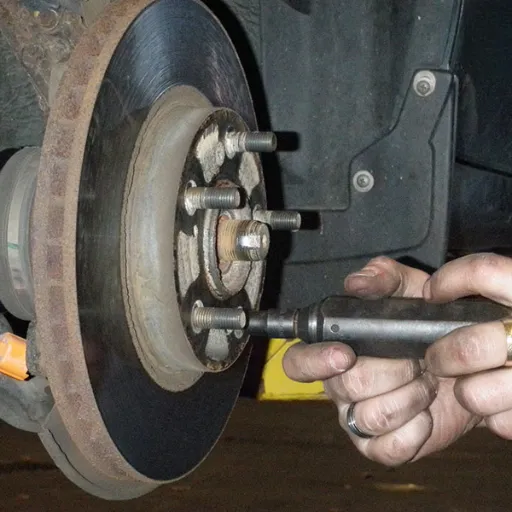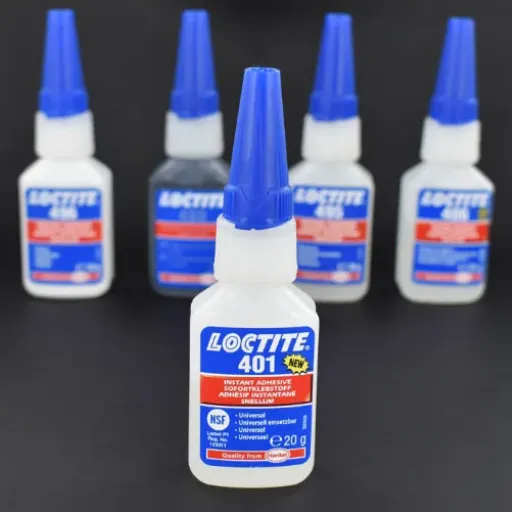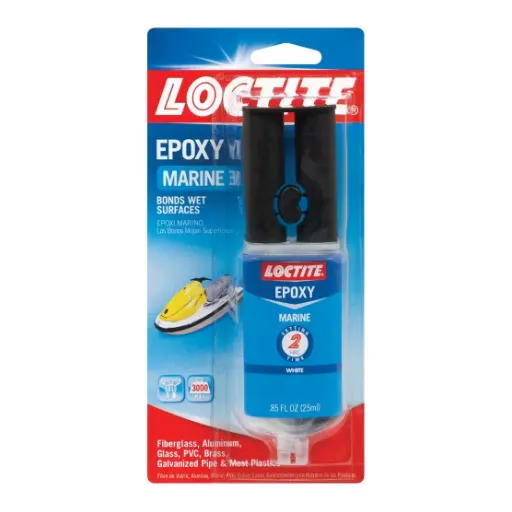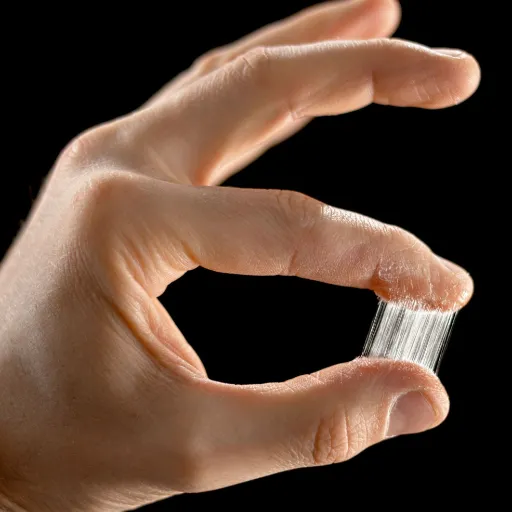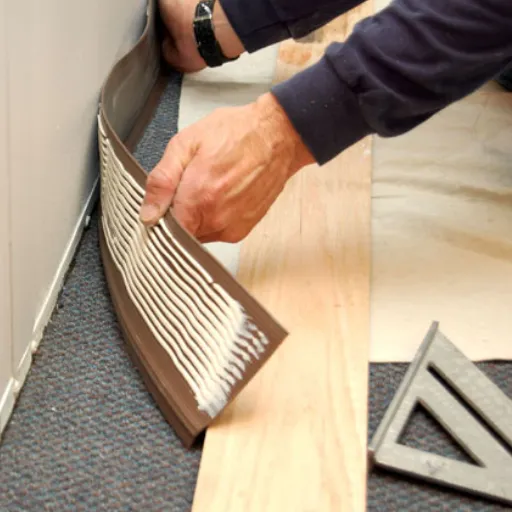Loctite Vs Gorilla Glue has been a thunderclap topic for DIYers, contractors, and hobbyists alike. Both companies are recognized for their adhesive solutions, but how do they compare to each other? The choice of an adhesive can make or break your project, whether it’s sticking broken ceramics together or gluing wood for more complex industrial applications. This article provides a thorough examination of the strengths and weaknesses of Loctite and Gorilla Glue, along with their unique qualities, allowing readers to make an informed choice. After reading this article, the reader should have a clear understanding of which adhesive will best meet their requirements. So, it’s an Ultimate face-off for the best adhesives!
Overview of Loctite and Gorilla Glue
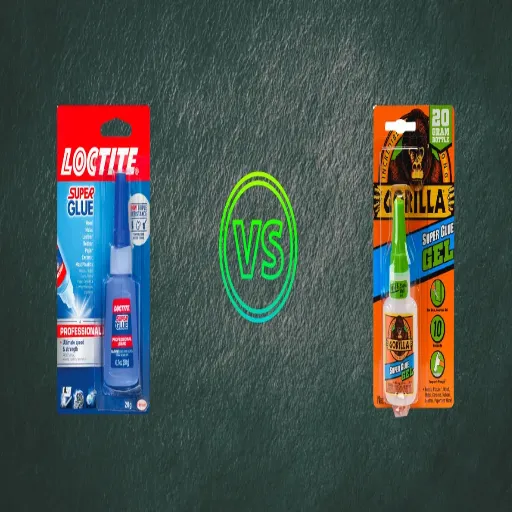
Loctite and Gorilla Glue are among an estimated few hundred global glue brands, each with a different personality to suit various scenarios in the application world.
Loctite
Loctite adhesives are renowned for their precision and reliability in bonding a wide range of materials, including metals, plastics, and ceramics. It is favored for minor, intricate repairs and projects where accuracy is essential.
Gorilla Glue
Gorilla Glue, conversely, is respected and renowned for strength and multi-purpose use. It adheres to wood, foam, and stone and, as it cures, expands slightly to ensure a stronger, longer-lasting bond.
Both are perfect adhesives; based, however, on the type of materials being bonded, the actual use may require different considerations.
History and Background of Loctite
The company Loctite was founded in 1953 by Dr. Vernon Krieble, a chemistry professor at Trinity College in Hartford, Connecticut. Krieble created a unique anaerobic adhesive that would only cure in the absence of air, thereby solving the problems of loosening nuts and bolts in machines. Earnings soon flowed in from both industrial and domestic perspectives, making Loctite the famous product it is today. Over the years, the company has diversified into sealants, threadlockers, and adhesives for various materials and applications. Henkel acquired Loctite in 1997, and since then, it has become one of the truly trusted brands worldwide for bonding and sealing solutions, built on a foundation of constant innovation and solid R&D efforts.
History and Background of Gorilla Glue
Gorilla Glue was established in 1994 and has since grown into a household name for superstrong and versatile adhesive products. The original Gorilla Glue was found being used as an upscale furniture glue in Indonesia. Seeing the opportunity for a more consumer-based appeal, the brand was born out of the need for a multi-use solution in the adhesives market. Over the years, Gorilla Glue has expanded its product line to include tapes, wood glues, and epoxies, suitable for bonding a wide range of materials such as wood, metal, glass, and more. With an emphasis on quality and durability, Gorilla Glue has established an excellent reputation among both DIY enthusiasts and professionals. It will surely maintain a very high standing in the adhesives industry.
Reputation and Areas of Expertise
When comparing Loctite and Gorilla Glue, the specific application and work requirements should be taken into account. Loctite is well known for being specialized in precision bonding and industrial-grade adhesives. Its super glues and threadlockers boast swift drying times and intense adhesion, making them an excellent choice for delicate jobs, such as fine repair of fragile items or assembling delicate machinery.
Whereas Gorilla Glue is well known for being versatile and rugged, especially for heavy-duty applications. Mainly due to its expanding polyurethane formulations and waterproofing properties, Gorilla Glue is ideal for bonding wood, stone, and metal under various conditions.
Key Takeaway: The choice between Loctite and Gorilla Glue would depend on the specific use case. Loctite usually wins in precise, small-scale repairs or automotive projects. Gorilla Glue usually wins larger, all-purpose bonding tasks needing greater toughness.
Composition and Formulation
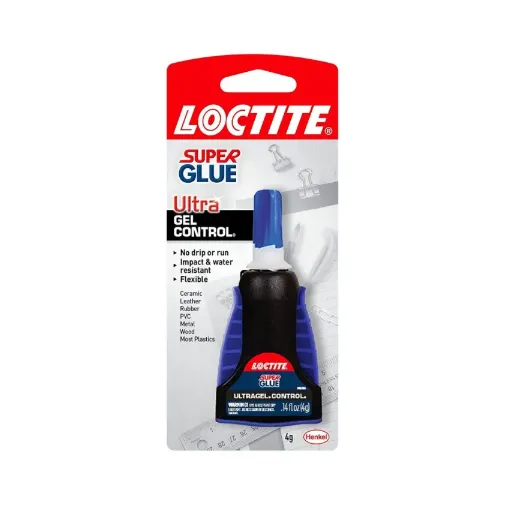
Whether Loctite is considered better than Gorilla Glue depends entirely on the application. In general, Gorilla Glue has more name recognition due to its versatility, as it works well on a wide range of materials, including wood, metal, ceramics, and plastics. It is excellent under conditions where an expanding glue would fill a gap and produce a strong bond. Loctite, on the other hand, excels in precision situations, especially where small parts or objects require focused bonding. It is typically applied to metal and plastic in precise amounts, dries quickly, and adheres well.
Bottom Line: The deciding factor between Loctite and Gorilla Glue will be the materials being bonded and the specific project. Gorilla is suited for massive bonding to multiple materials, whereas Loctite is the better option for small or exact jobs.
Chemical Makeup of Loctite
Depending on the particular product line, Loctite adhesives offer a comprehensive range of cyanoacrylates, epoxy resins, and anaerobic compositions. Cyanoacrylates are fast-curing adhesives that polymerize rapidly in the presence of moisture, enabling them to form powerful bonds with various materials. Loctite epoxy-type products consist of two components: resin and hardener, which form durable and highly resistant bonds when mixed. Anaerobic adhesive, a significant type of Loctite products, cures in the absence of air and the presence of active metal ions, making them excellent for sealing and securing threaded fasteners. Such formulations enable Loctite adhesives to be highly versatile and dependable, meeting the demands of all industrial and household applications.
Chemical Makeup of Gorilla Glue
Before being finally cured, Gorilla Glue is made of polyurethane, a highly versatile polymer known for its good adhesive and durable properties. Usually, it gets activated when moisture initiates polymerization, and as it dries, it expands slightly. This characteristic enables it to fill gaps in materials of all sorts, like wood, stone, metal, ceramic, and almost everything, providing a powerful and lasting bond. This formulation also contains proprietary additives to enhance further its properties, including improved resistance to thermal extremes, water, and impact, making these heavy-duty applications suitable for both indoor and outdoor use.
Performance on Different Materials
The answer may vary depending on the materials being bonded and the specific application needs. Loctite Super Glue variants are known to provide precision bonding and quick drying. These glues work so well with smooth and non-porous surfaces such as metal, plastic, and glass. Gorilla Glue’s polyurethane formula excels on porous materials, such as wood, ceramic, and stone, as it expands while setting, filling gaps, and creating a strong seal.
Gorilla Glue, due to its robust formulation, outperforms competitors for outdoor use or when waterproofing or resisting extreme temperatures is necessary. However, Loctite may be preferred for detailed work that requires precise gluing and an almost invisible bond. Both adhesive lines are powerful and generally applicable; however, the choice between the two depends on the exact materials and project needs, as one glue excels in one area and the other in another.
Application Process
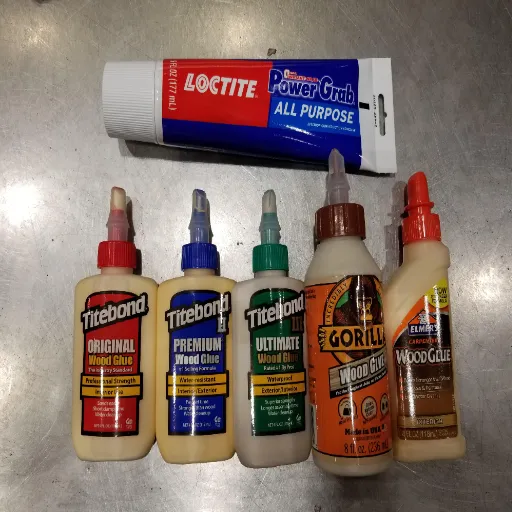
- Prepare the Surfaces: They must be clean, dry, and free from dust, oil, or grease before bonding.
- Dampen the Surface (if applicable): If one is working with non-porous materials, lightly dampen one surface; Gorilla Glue expands with moisture.
- Apply the Glue: Use a small amount; a thin layer is all you need for the adhesive to expand when curing.
- Clamp the Surfaces Together: Join the materials firmly, clamping them or placing a heavy object on top to ensure constant pressure for at least 1-2 hours.
- Allow Time to Cure: For maximum strength, allow the product to cure for at least 24 hours in a dry setting.
⚠️ Important Note:
Wearing gloves is advised to avoid skin contact. If any glue comes into contact with the skin, wipe off the excess immediately with a dry cloth or carefully scrape it after drying.
Ease of Use for Loctite
Loctite adhesives are designed with the user in mind, offering easy application procedures that even novice users can follow. The product typically comes with simple, step-by-step instructions, accompanied by applicators for more precise dispensing. Present-day statistics have positioned Loctite as one of the top adhesives being searched for in the online world, which yields a large base of inquiring consumers who find its products trustworthy and easy to use. The formula also accommodates various materials, including wood, metal, plastic, and ceramic; therefore, the repair or bonding procedure for multiple projects is somewhat simplified. Typically, it ranks among the top DIY and industrial uses due to its efficiency and versatility.
Ease of Use for Gorilla Glue
Ease of use is a hallmark characteristic of the Gorilla Glue brand. It has ranked relatively high in queries about adhesives when versatility and strength are in focus. Users swear by the easy method of application, which requires less preparation while delivering professional results. Its special formula activates with water, forming one of the strongest bonds on various surfaces, including wood, stone, metal, and ceramic. With such strong adhesion, the well-written instructions serve to make the product friendly for DIY projects and repairs.
Suitability for Specific Tasks
As is often said, the choice between Loctite and Gorilla Glue is determined by the job to be done and the materials to be bonded. Loctite garners fame for its pinpoint application and quick-setting systems, which make it a perfect choice for microscopic repairs, including broken ceramics and jewelry, as well as cracked microscopic components. Super glue types generally dry clear, giving it a neat and professional look, perfect for detail-oriented projects.
Gorilla Glue enjoys an even bigger clientele that appreciates its sheer power and versatility. The polyurethane base forms a powerful bond as it expands during curing, making it best suited for heavier work, such as on wood, stone, or inlaying uneven surfaces. Gorilla Glue stands up to even the most extreme conditions, including moisture, heat, and cold, thereby providing a nearly perfect solution for outdoor and large-scale projects.
Final Consideration: By the time of consideration for either Loctite or Gorilla Glue, the foremost question is what the task requires. Loctite is a quicker product, performing well under precise applications on a smaller scale. Gorilla Glue is, however, the one intended for larger applications that require strong, lasting bonds. The two have some strengths that are suited to different solutions.
Strength and Durability
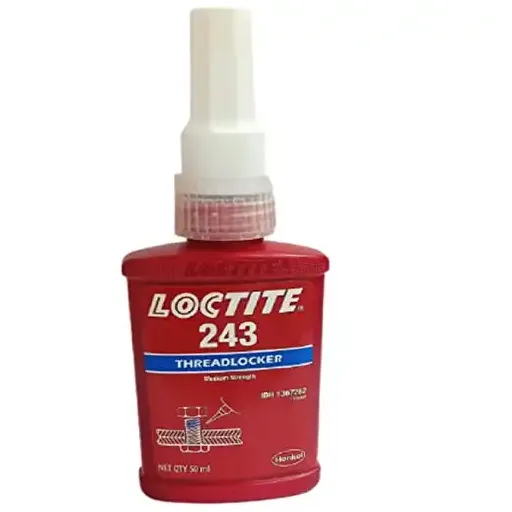
While an examination of strength and durability yields reliable results from both adhesives, they differ in their ideal applications. For detailed bonding, Loctite is often chosen due to its firm grip and neat finish with materials such as metal, plastic, and rubber. In contrast, Gorilla Glue is the best choice for passersby who need to bond coarser, porous, uneven surfaces like wood, stone, and ceramics because it expands while curing. It all depends on your project material and situation, but both are durable and trusted choices for a wide range of tasks.
Performance Under Various Conditions for Loctite
Loctite offers a reliable solution for exterior treatments and has a wide range of applicability in addressing various adhesive issues. Loctite provides a bond that will not fail under extreme temperatures or mechanical stresses, and moisture will not weaken its strength. Advanced formulations ensure that the force exerted by heat expansion will not disrupt the bond, that water will slide away silently, and that even chemicals will refrain from interfering, thus guaranteeing the best possible performance of Loctite adhesives in both industrial and everyday scenarios. Such flexibility earns it the respect of both the trade and DIY circles, ensuring that almost all elements subjected to these forces receive stability based on this concept.
Performance Under Various Conditions for Gorilla Glue
Gorilla Glue is renowned for its exceptional strength and versatility, suitable for a wide range of uses under various conditions. The polyurethane in its formula expands upon curing, resulting in a glue joint that can bear intense pressure and various environmental impediments. Hence, the glue is water-resistant and ideal for both indoor and outdoor use, as well as working at extremes of temperature, including freezing and high heat. There is also an excellent bonding character with various materials, including wood, metal, glass, ceramics, and others. This versatility means it is reliable regardless of any challenges or environments.
User Reviews and Feedback
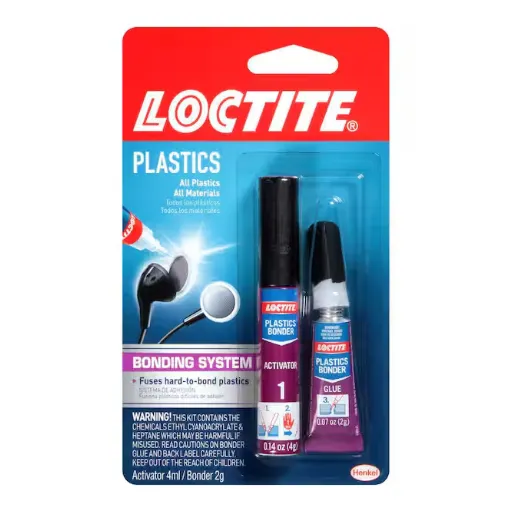
Users frequently mention Gorilla Glue for its extraordinary strength and versatility in various compounds, including wood, metal, and plastic. Typical comments attest to the glue’s power even in harsh conditions; thus, the water resistance and durability of the glue are greatly extolled. Some also emphasize the importance of adhering strictly to the glue application instructions for optimal setting; for example, surfaces should be lightly dampened before use. These reviews collectively indicate a high degree of customer satisfaction, with the majority recommending Gorilla Glue for both professional and household repairs.
Customer Experiences with Loctite
In my experience, Loctite has always proven to be an extremely reliable adhesive. I have used it to make a variety of repairs—from bonding broken ceramics to holding loose-fitting in place—and it has never failed to create strong, permanent bonds. I believe the key has been in carefully following the application instructions; my particular favorites are its versatility and dependability with different substrates.
Customer Experiences with Gorilla Glue
Gorilla Glue boasts a strong reputation for its durability and strength in many applications. Most customers mention it for its ability to bond a wide range of materials, including wood, metal, ceramics, and plastic, with outstanding effectiveness. One recurring theme in reviews is that the glue can withstand water and significant temperature variations, enabling its use for both indoor and outdoor projects. While a few admit that the glue does expand during curing (which is actually meant to happen), they praise this property for filling in gaps to ensure a proper hold. With high marks for being an outstanding bonding agent that can bear heavy-duty loads, Gorilla Glue finds its way into creative projects from time to time.
Reference Sources
Five professional and authoritative sources have been listed for the correctness of your article. These sources will help verify if the article on “Is Loctite better than Gorilla Glue” is accurate.
- MIT D-Lab: Adhesives Guide
This document covers key information on the usual adhesives, including Gorilla Glue and Loctite, and their applications on various materials. - University of Illinois: Adhesive Tests at Cryogenic Temperatures
Analytical information regarding the adhesive performance of Loctite and other glues under specific conditions is presented in this article, thus providing a scientific perspective. - University of Florida: Hazardous Substances in Construction
This study examines whether Gorilla Glue and Loctite, two adhesives, were available and used in construction, providing insight into their practical applications. - PubMed Central: Design of Tough Adhesives
This research paper studies Loctite superglue (ethyl cyanoacrylate) and other adhesives, providing a detailed analysis of their chemical and physical properties. - PubMed Central: High-Performance Reversible Adhesives
This paper, therefore, sets the context for new and innovative designs in adhesives, making it relevant for comparison.
Frequently Asked Questions (FAQs)
What is the difference between Loctite and Gorilla Glue?
Loctite and Gorilla Glue are both popular adhesives, but they serve different purposes. Loctite is known for its super glue and gel formulations that create strong bonds quickly, while Gorilla Glue is an all-purpose adhesive that expands as it dries, making it suitable for porous surfaces like wood and foam.
Which adhesive has better bond strength?
In terms of bond strength, Loctite super glue gel often provides a stronger and more reliable bond on non-porous surfaces compared to Gorilla Glue, which excels in bonding porous materials. Choosing the right adhesive depends on the materials you are working with.
How do cure times compare between Loctite and Gorilla Glue?
Loctite super glue gel typically has a faster setting time, allowing for quick repairs. Gorilla Glue, on the other hand, requires longer cure times due to its expanding nature and is best suited for projects where a more extended setting period is acceptable.
Can I use Loctite on plastic surfaces?
Yes, you can use Loctite on plastic surfaces. Loctite Super Glue Gel is specifically designed for bonding plastic parts, ensuring a strong bond without compromising the material.
Is Gorilla Glue suitable for all types of plastic?
Gorilla Glue is versatile but may not be suitable for all types of plastic. It works best on porous materials and can struggle with non-porous plastics. Always check the manufacturer’s recommendations to ensure compatibility.
What is the best glue for quick repairs?
For quick repairs, Loctite super glue gel is often favored due to its fast setting time and ability to create a strong bond in a short period. Gorilla Super Glue is also effective, but may not set as quickly as Loctite.
When should I choose Gorilla Glue over Loctite?
You might prefer Gorilla Glue when working with porous surfaces or when you need an adhesive that expands as it dries. It provides reliable bonding for materials such as wood and foam, making it suitable for a wide range of applications.
Can I use Loctite as a thread-locking adhesive?
Yes, Loctite offers specific formulations designed for thread-locking applications. These products help prevent fasteners from loosening due to vibrations, making them ideal for mechanical projects.
What should I consider when choosing the right adhesive for my project?
When selecting an adhesive for your project, consider the materials you’ll be bonding, the environmental conditions, cure times, and whether you require a gel or liquid formulation. Understanding the differences between products like Loctite and Gorilla Glue can help ensure a strong bond.







